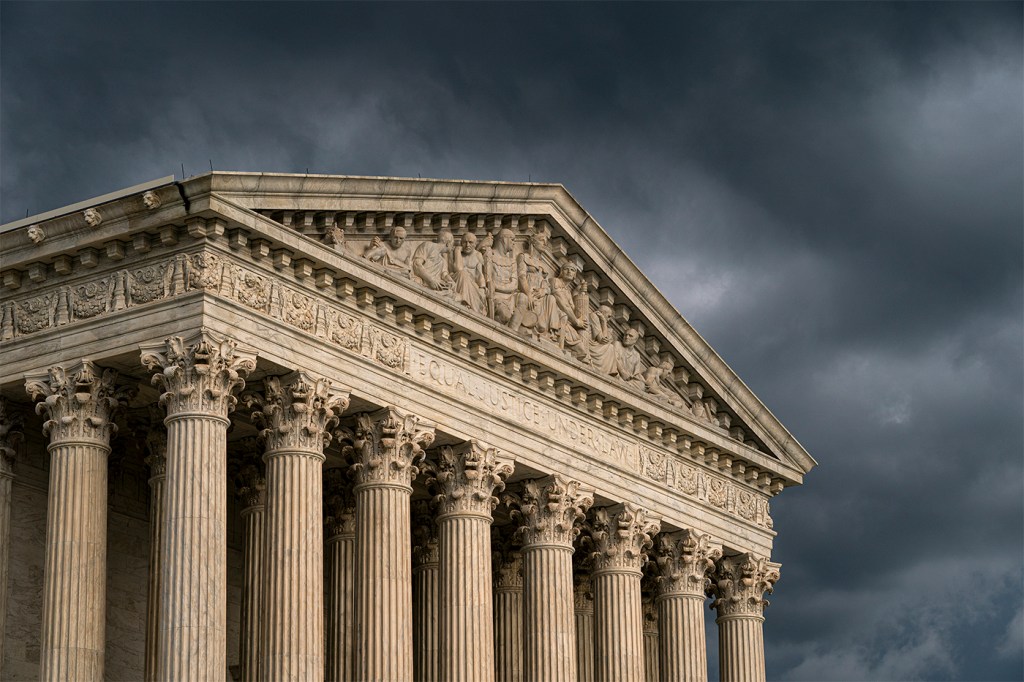How might the LGBT cases in front of the Supreme Court affect the workers of tomorrow?

This month, the U.S. Supreme Court heard arguments about whether a landmark civil rights law bars job discrimination based on sexual orientation and transgender status. But, while the justices weigh the evidence, people who are lesbian, gay, bisexual, or transgender still need to find and keep regular employment—something that’s easier said than done.
The majority of LGBT Americans have experienced some form of harassment or discrimination at work, according to a 2017 study. More than half of the U.S.—26 states—lack explicit workplace protections for LGBT employees, according to the Movement Advancement Project, an organization that tracks the laws affecting LGBT people. And this is all if, of course, a person can even find a job, which can be particularly difficult for people who are transgender, says Bianca Robinson, who is the director of diversity, equity, and inclusion at the YWCA Boston.
“The fact is, trans people, and trans women in particular, just are not participating in the economy right now in the ways that people who represent the rest of the queer acronym are participating,” said Robinson, who is also a panelist Northeastern’s Reach(OUT) LGBTQA+ Career Conference this year.

Bianca Robinson is the director of diversity, equity, and inclusion at the YWCA Boston and a panelist at this year’s Reach(OUT) LGBTQA+ Career Conference at Northeastern. Photo by Ruby Wallau/Northeastern University
The two-day event, which starts on Friday, focuses on the specific perspectives and concerns of lesbian, gay, bisexual, transgender, queer, gender non-conforming, non-binary, intersex, and asexual students who are on the verge of entering the workforce.
And Robinson is right, according to GLAAD, an organization that tracks LGBT issues: Compared to the general population, transgender people are twice as likely to be unemployed. For transgender people who aren’t white, the statistics are even more bleak: They’re four times as likely to be unemployed.
Robinson, who has been participating in the Reach(OUT) conference for years and gave its keynote address last year, said she focuses on preparing students for what to do if they can’t find a job.
“A lot of the topics for the panels would assume that someone is going to get a job, or is going to maintain a job, and unfortunately that just might not be the reality,” said Robinson, who has encouraged conference organizers to include a broader range of employment issues for LGBT people.
“The reason we do Reach(OUT) is for that intergenerational knowledge-sharing, and it’s important to have very candid, thoughtful conversations with people who are on the verge of entering a standard workforce,” she said.
This year, the conference will be held in the shadow of a Supreme Court case to decide whether LGBT people will gain basic workplace protections, a fact that is not lost on its organizers.
“The fact that this court case is happening only increases the anxiety for LGBT folks who are making a career change or who are graduating in the near future,” said Lee West, a co-chair of the event and the director of the LGBTQA Resource Center at Northeastern.
“In the center, there was a lot of discussion [among staff and students] about what this decision will mean and whether it will limit where [students] can work or what they can do,” he added.
Every year, one section of the conference is dedicated to helping students understand their rights in the workplace and how those rights might vary from state to state and country to country.
For example, according to the same data from the Movement Advancement Project, Wisconsin state laws explicitly prohibit discrimination based on sexual orientation, but not on transgender status. Pennsylvania lawmakers interpret Title VII of the Civil Rights Act—which outlawed discrimination based on race, religion, national origin, and sex—to mean discrimination based on sexual orientation “and/or gender identity,” as well. And New York has its own state law that prohibits discrimination based on sexual orientation and gender identity.
Lee said he expects the Supreme Court cases to get a lot of attention during that section this year.
Other sections during the conference cover topics such as assessing workplace culture and navigating a job as a transgender person or a person whose appearance doesn’t conform to traditional gender norms.
“It’s so important to have a space where we can talk to folks who have navigated these particular issues in the workplace before, and can be a way for students to see themselves represented in careers, as well,” West said.
For media inquiries, please contact media@northeastern.edu.





